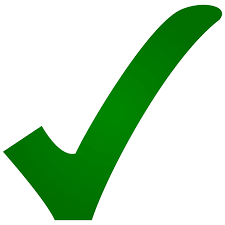check
英 [tʃek]
美 [tʃek]
- vt. 检查,核对;制止,抑制;在…上打勾
- vi. 核实,查核;中止;打勾;[象棋]将一军
- n. 支票;制止,抑制;检验,核对
- n. (英)切克(人名)
使用频率:

记忆方法
将“check”与“checkmate”(棋盘游戏中的“将军”状态)联系起来记忆。想象一下你正在用“check”(检查)来观察棋盘上的“checkmate”(将军)局面,这样“check”这个词与检查或检验的动作紧密相连,便于记忆。
以上内容由AI生成, 仅供参考和借鉴
中文词源
check 检查
来自古法语eschequier, (棋子游戏)将军,来自阿拉伯语shah, 王。原指一种两军对垒的棋子游戏,当逼近对王主帅时,则说:shah mat, 将杀死你的王,请注意,请检查。类似于中国象棋术语将军。其拼写演变较复杂,首先加字母e, 然后将es又当做前缀ex-脱落,参照etude, echelon. 词源同chess, cheque, exchequer.
英语词源
- check
-
check: There are two distinct words check in English, although by very involved pathways they are related. Check ‘verify’ [14] is originally a chess term meaning ‘threaten the king’. It comes from Old French eschequier, a derivative of the noun eschec (source also of English chess), which goes back via Vulgar Latin *scaccus and Arabic shāh to Persian shāh ‘king’ (whence also, of course, English shah). (Checkmate [14] comes via Old French eschec mat from Persian shāh māt ‘the king is left helpless’; the second element turns up again in mat or matt ‘lustreless’.) From the very specific chess sense there developed more general applications such as ‘attack’, ‘arrest’, ‘stop’, ‘restrict’, and ‘verify’.
Among these in the 18th century was ‘token used as a counterfoil for verifying something, such as an amount’. As check this survives mainly in American English (as in ‘hat-check’), but in the specific financial sense of ‘written money order’ it was transformed in British English into cheque, perhaps under the influence of exchequer. Check ‘pattern of squares’ [14] is probably short for chequer, which in turn is a reduced form of exchequer, a word derived ultimately from Vulgar Latin *scaccus ‘check’.
=> cheque, chess, exchequer - check (n.1)
- c. 1300, "a call in chess noting one's move has placed his opponent's king (or another major piece) in immediate peril," from Old French eschequier "a check at chess" (also "chess board, chess set"), from eschec "the game of chess; chessboard; check; checkmate," from Vulgar Latin *scaccus, from Arabic shah, from Persian shah "king," the principal piece in a chess game (see shah; also compare checkmate (n.)). Also c. 1300 in a generalized sense, "harmful incident or event."
When the king is in check that player's choices are severely limited. Hence, "sudden stoppage" (early 14c.), and by c. 1700 to "a token of ownership used to check against, and prevent, loss or theft" (surviving in hat check) and "a check against forgery or alteration," which gave the modern financial use of "bank check, money draft" (first recorded 1798 and often spelled cheque), probably influenced by exchequer. Checking account is attested from 1897, American English. Blank check in the figurative sense attested by 1849. Checks and balances is from 1782, perhaps originally suggesting machinery. - check (v.1)
- late 15c., in chess, "to attack the king; to put (the opponent's king) in check;" earlier (late 14c.), "to stop, arrest; block, barricade;" see check (n.1). A player in chess limits his opponent's ability to move when he places his opponent's king in check. All the other senses seem to have developed from the chess sense: "To arrest, stop;" then "to hold in restraint" (1620s); and finally "to hold up or control" (an assertion, a person, etc.) by comparison with some authority or record, 1690s. Hence, to check off (1839); to check up (1889); to check in or out (in a hotel, of a library book, etc., by 1918). To check out (something) "to look at, investigate" is from 1959. Related: Checked; checking.
- check (v.2)
- "mark like a chessboard, incise with a pattern of squares or checks," late 14c. (implied in checked), from check (n.1). Related: Checking.
- check (n.2)
- "pattern of squares, cross-like pattern," c. 1400, short for checker (n.1).
权威例句
- 1. Check the oil at regular intervals, and have the car serviced regularly.
- 定期检查汽油,并对车辆进行定期维护。
- 2. Someone comes in every day to check all is in order.
- 每天都有人来检查是否一切都井然有序。
- 3. Sex education is also expected to help check the spread of AIDS.
- 人们还希望性教育有助于控制艾滋病的蔓延。
- 4. I'd like to check the balance in my account please.
- 请查一下我的账户余额。
- 5. The city police set up roadblocks to check passing vehicles.
- 该市警察设置了路障以检查过往车辆。